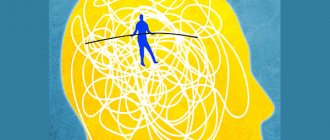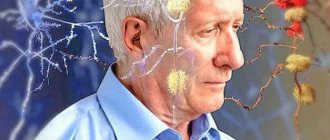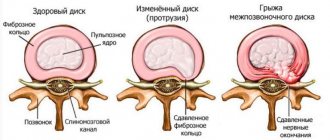New thoughts and hopes for those suffering
Review and facts, what is schizophrenia?
Do you find it difficult to separate reality from fantasy? Do you hear voices? Do you believe that someone is reading your thoughts and controlling them? Are your thoughts “switched off” and do you find it difficult to express how you feel and why you act and think the way you do? If so, then you may be sick. All of the above signs are a consequence of brain depletion and behavioral disorder with chronic and acute first signs that increase continuously or periodically return in acute episodes throughout life.
Heavily stigmatized in our culture, it is often confused with multiple personality disorder and sufferers are suspected of posing a serious danger to others. Yes, people diagnosed with schizophrenia exhibit strange behavior and may appear agitated, withdrawn, or unresponsive, which creates additional fear in the general public. Most of them do not understand that if someone suffers from this condition, there is a regulated treatment: medications and psychological help, and this significantly improves the lives of those who experience this condition. And it is very important to get timely help if you are suffering from a disease, because, contrary to public opinion, patients pose the greatest danger to themselves, not to others. Schizophrenia carries a high risk of suicide, with 10 to 13% of people diagnosed making a successful suicide attempt within the first decade of diagnosis. The overall prevalence of this disorder affects up to 1% of people, and what makes this disease so frightening and monumental is the severity of its symptoms.
Although it can occur at any age, the most typical onset of the disease usually occurs:
- in men: between late teens and early 20s
- in women from 20 to 30 years old.
It is very rare for people under the age of 12 and over 40 to be diagnosed. Life expectancy is reduced by approximately 10-25 years compared to average, although this is likely due to an increase in the number of physical early signs and much higher suicide rates than in the general population.
Causal features of the disease in men
It is believed that schizophrenia develops against the background of neurochemical changes in the brain. Changes in the level of the neurotransmitter serotonin entail disruptions in the transmission of nerve impulses, the functioning of the brain is disrupted, leading to a disorder of mental processes and properties. The patient’s psyche undergoes a revolution, forcing him to see his surroundings in a different light.
Among the causes of schizophrenia in men, hereditary factors are in first place. Close relatives of the patient often suffer from this disease or some other mental disorder - character accentuation, psychopathy, depression.
It happens that the patient’s illness manifests itself for the first time against the background of complete well-being among close relatives. Then you should look for traces among previous generations, at least three. If you dig deep into your pedigree, you can probably find that one of your ancestors had mental disorders. Look in the history of the family for cases of suicide, alcoholism, bizarre behavior, and contrasting moods. More often, inheritance occurs through the mother's side. The phenomenon is called “gene accumulation”: healthy parents give birth to sick children.
The existing schizophrenia gene affects the brain in the womb.
Other causes of the disease include viral infections that pass through the blood-brain barrier. The virus damages the cerebral cortex and disrupts the brain structure.
In autoimmune diseases, the body attacks its own brain. The human immune system gets out of control and begins to rebel, acting against itself.
The first signs of schizophrenia
Features are often categorized into positive, negative, and cognitive deficits. If you suffer from schizophrenia and are undergoing treatment, you may have noticed that medications are quite good at reducing positive symptoms. Negative signs are more persistent and do not respond to drug intervention as easily as positive signs. Deficits in cognitive abilities are the first serious indicator of the impact of the disease on an individual’s quality of life. If you suffer from multiple cognitive deficits, your functioning in society as an adult will be minimized, your behavior will deteriorate, and sustainable recovery will be more difficult to achieve.
Positive signs include:
- Delusions are false beliefs that remain stable even when the patient is presented with facts that contradict these beliefs.
- Hallucinations (tactile, auditory, olfactory and gustatory). The first signs are voices. Visual hallucinations are extremely rare in schizophrenia
- Thought disorders (dysfunctional thinking)
- Movement disorders (excited body movements, or, conversely, stupor)
Cause of schizophrenia
Researchers have not yet determined the exact cause, but common genetic and environmental factors are leading causes of unusual behavior. It's no secret that the disease is hereditary. Research has shown that while schizophrenia affects less than 1% of the general population, if you have a first-degree relative with the disease, your chances of developing it increase to 10%. In twins, this risk is significantly increased, with an undiagnosed identical twin having a 50% chance of developing it. But this does not mean that if your mother is sick, then you will automatically suffer. Although genes increase the risk of disease, they only lay the foundation. For the development of the full picture, it seems that the “right” combination of environmental factors and genetic predisposition is necessary.
Research has shown that some of the most significant environmental factors that contribute to the inclusion of hereditary factors are problems during childbirth, intrauterine fetal starvation, exposure to certain viruses and psychosocial factors.
Brain composition is also considered the first leading feature. Imbalances between neurotransmitters, particularly problems with dopamine, appear to be responsible for the higher incidence of schizophrenia in the general population. Likewise, disruption of brain development during the gestational phase of development can lead to the first imbalanced connections between brain chemistry and brain structure (especially white matter), in addition to the first hormonal changes/imbalances that occur during puberty.
There is some evidence that substance abuse may also predispose to the development of the disease. Use of mind-altering drugs during adolescence and early adulthood may increase the risk of developing behavioral changes, including marijuana use.
Symptoms and signs of schizophrenia in men
There are several groups of signs by which doctors differentiate the disease - productive and negative.
Positive signs of schizophrenia in men
Productive or positive signs are reversible symptoms, such as delusions, hallucinations, and obsessive-compulsive disorder. Their appearance directly indicates the presence of schizophrenia in the patient.
Rave
Delusional ideas in men come in several types.
- Delusions of grandeur . The person feels super-capable and talented. He can claim that he is the right hand of an influential minister or even the president himself; he is able to resolve issues of any complexity and importance. Trying on the role of “general” or “marshal” is a characteristic feature of delusions of grandeur in men. They imagine themselves to be the greatest military leaders and try to create a prototype of the army within their family. Every morning there is a formation before breakfast and strict discipline is established. All household members suffer from this attitude. Insubordination or criticism of the patient can provoke an outburst of anger. The man also feels that he has superpowers and declares that he is a superhero, ready to perform brave deeds. He sincerely considers saving people's lives his mission. To prove his abilities, he fearlessly breaks into a burning house, throws himself into a deep pond, and jumps from a height. In this condition, the patient can be dangerous to himself.
Relatives need to constantly monitor his actions, and if necessary, seek emergency medical help. You can ask for help and get advice by calling +7 (499) 495-45-03. Specialists at the mental health center “Balance” are always ready to answer your questions and provide the necessary assistance. We work around the clock. Our mobile team with a psychiatrist will arrive at the specified address and, if necessary, help transport the patient to the hospital.
- Delirium of persecution. Its basis is obsessions. The patient considers himself an object of surveillance. Moreover, they can monitor from anywhere - aliens from outer space, neighbors from the upper or lower floors, family members, people on the street, TV presenters from TV screens, secret services. In this state, a man experiences incredible nervous tension and strong fear for his life. He tries his best to catch the "persecutors" and prevent a plot against him.
- Nonsense of relationships. The patient believes that everyone around him, including family members, constantly discusses him, criticizes his actions, condemns his appearance, “whispers” behind his back, and gives him “sideways glances.” They record all his movements and actions and record them on video.
- Delirium of jealousy. It may be based on a real event in which the spouse was actually guilty of infidelity, or it may develop on the basis of a fictitious, obsessional idea. In the second case, this type of delusion, not confirmed by actual actions, is called “Othello syndrome.”
- Delirium of influence . It is inextricably linked with auditory hallucinations of the command type. The patient hears voices in his head that tell him, guide him. In this condition, the patient exhibits inappropriate behavior. He can harm not only himself, but also those around him.
Hallucinations
For men, mostly only auditory hallucinations occur, while women can also experience visual, tactile and olfactory hallucinations. Auditory is expressed in the constant “broadcasting” of voices in the patient’s head, which only he hears. It can be one, several or a whole choir of voices. Hallucinations can be one-sided, when only voices speak, and two-sided, when there is a constant dialogue between them and the patient.
“Broadcasting” in the head can be of a different nature. Voices comment on current events, discuss programs watched, condemn, blame or criticize the appearance of the patient himself. The most dangerous are considered imperative hallucinations, when voices order to perform some action, even if it is contrary to the man’s wishes. It is in this state that suicides most often occur; the patient commits crimes aimed not only at those around him, but also at his loved ones.
“Ordered” hallucinations are a serious reason for compulsory treatment of a patient in a hospital, regardless of the patient’s consent.
You can recognize a man suffering from auditory hallucinations by the oddities in his behavior:
- he talks to himself or an imaginary interlocutor;
- may suddenly become silent in the middle of a dialogue, listening to something;
- unable to concentrate, from the outside it seems that the patient sees and hears something incomprehensible to others;
- actively gestures with his hands, without matching the topic of conversation, constantly jumps from one discussion to another.
Obsessions
An obsessive state in schizophrenia in men is expressed in increased anxiety, fixation on one problem, constantly turning it over in the head, automation of movements and the creation of household rituals. A person constantly fears for his own well-being , so he double-checks several times whether he has closed and turned off everything before leaving.
Obsessions in men evolve over time into more severe signs and symptoms, such as delusions and hallucinations, characteristic of paranoid schizophrenia.
The behavior of patients with productive symptoms is dangerous for others and for the patient himself. Such a patient requires urgent drug therapy in a hospital setting. center “Balance” offers qualified medical care. We employ experienced psychiatrists who will establish an accurate diagnosis, differentiate the type of schizophrenia and, in accordance with the individual characteristics of the course of the disease, select adequate pharmacotherapy.
Your relative will be monitored around the clock and his condition monitored. We place our patients in 2- and 3-bed wards. At your request, we can also provide rooms without sharing and VIP categories. We provide all services strictly anonymously. After discharge, your relative will be able to return to society without fear of publicity and censure from others.
For more information, please call +7 (499) 495-45-03
Negative symptoms of schizophrenia in men
Negative symptoms are associated with irreversible disorders of mental functions - memory, attention, concentration, logic and thinking, as well as speech and the emotional-volitional sphere.
Changes in the emotional sphere
The emotional background of a man becomes extremely unstable. It is in this area that the main feature of schizophrenia is most manifested - duality . The patient is characterized by sudden mood swings, a shift from one extreme to another - loves-hates, laughs-gets angry, is silent-screams. A previously calm person, incapable of expressing strong emotions, is now characterized by sudden outbursts of aggression and irritability.
As the disease progresses, a pronounced impoverishment of emotions occurs. A person becomes gloomy, withdrawn and detached, isolates himself from family, friends and acquaintances, and ceases to be interested in his hobbies, events in the world, and later in the family. Many men develop depression against this background, and as a result, suicidal thoughts appear. Relatives of men should carefully monitor changes in the behavior of their loved one in order to notice “something is wrong” in time and seek psychiatric help, thereby preventing trouble.
Speech Impairment
Speech becomes slow, inhibited or, conversely, overly active, supplemented by violent gestures. A man can philosophize on the value of existence, the role of man in the universe . At the same time, his expressions will be complex, often devoid of meaning and logic. It is also typical to jump from one topic to another during the dialogue. It is difficult for the interlocutor to follow the patient’s thoughts and the essence of the conversation itself.
A man comes up with his own language or individual words, the meaning of which he cannot explain. After some time, he is unable to remember what he composed.
Impaired memory, attention and concentration
A person cannot focus and concentrate on completing a simple task. It is difficult for him to assimilate new information, maintain a budget, and calculate financial costs. If the patient is a young guy who studies at a college, technical school or university, he begins to experience problems with his studies. He cannot do his homework, answer successfully in seminars, or pass exams. Over time, he loses interest and desire to achieve his goal. As a result, he drops out of school, even if there is a year or several months left before graduation.
Schizophrenia in old age affects the destruction of short-term memory. The patient does not remember where he put his things, keys, phone, or what he did a few hours ago. But he can talk in detail about his childhood and youth.
Behavior change
Behavioral disturbances are often a consequence of all the previously overcome signs and symptoms of schizophrenia in men. Due to the weakening of the volitional sphere, the patient cannot regulate his actions and actions, bring them into conformity with the accepted rules in society. Actions that previously seemed immoral are now the norm for him. A man can behave inappropriately, be rude and swear, and react aggressively to criticism addressed to him. A sharp change in preferences in food, clothing, and color shades is also characteristic.
Particularly strong deviations in behavior are observed in patients with hebephrenic form of schizophrenia. The actions of an adult man are childish. He constantly grimaces, giggles inappropriately, and speaks in a “feigned” voice. Such a patient tries in every possible way to attract attention to himself.
The other, opposite, side of behavioral disorder is complete isolation, detachment from the outside world, and social isolation. It is not uncommon for men to develop autism. Such people refuse to make eye contact, cannot tolerate tactile touches, and repeatedly repeat stereotypical movements.
Complications of schizophrenia
As mentioned, suicide rates are abnormally higher in people with schizophrenia than in people with other mental disorders. Thus, various estimates suggest that between 20% and 40% of people diagnosed will attempt suicide at some point in their lives. It is likely that up to 13% will successfully complete this act, with the majority of them being men. Suicide is a serious complication of schizophrenia because many people with the disorder don't even know they have it and, if they feel like killing themselves, don't know they can get help.
Substance abuse is another common behavioral complication. Nicotine addiction is the most common substance abuse disorder among schizophrenics, with patients suffering from nicotine addiction three times more often than the general population. If you have schizophrenia, you have an increased tendency to abuse more difficult substances, including marijuana, alcohol and cocaine. Of course, drugs have a devastating effect on a person’s overall health, but the simultaneous use of drugs and medications for schizophrenia makes them (the medications) less effective and potentially dangerous. In addition, amphetamines (stimulants) significantly worsen behavior and severity of symptoms.
Where does male schizophrenia begin?
In almost 100% of cases, the disease reveals itself as a person’s detachment from society. The representative of the stronger sex becomes withdrawn and unsociable. From the outside he looks depressed and depressed. Shortly before the blossoming of the process, the patient is overcome by a pessimistic mood. Remarks like: something is wrong, but I don’t understand what exactly. What is happening to me?
A sad symptom of schizophrenia is coldness towards loved ones. The patient withdraws from the family, believing that relatives are capable of causing harm. Sensitivity and the ability to empathize are lost. The head of the family becomes indifferent to everything that used to be the center of life. Work is uninteresting, household responsibilities are no longer of concern. Hobbies are abandoned.
A person is overcome by a wave of fatigue and apathy. I don't want to do anything. There are no aspirations or goals.
The problem is that the stronger sex is by nature more reserved and emotionally poor. Such signs, if they also develop gradually, rarely suggest a disorder. Rather, they are mistaken for an age crisis and associated with failures at work. Usually in such a situation, relatives begin to get angry with the sufferer for his passivity, or take offense at indifference and coldness. Others are at a loss, not understanding what is happening.
Schizophrenia can also manifest itself with outbursts of aggression and rapid mood swings. Patients become extremely suspicious and see conspiracy everywhere.
A sure sign of a schizophrenic debut is a feeling of threat, loss of self-confidence. Inability to correctly assess reality.
The girl describes her lover. The man is 40 years old. He occupies a high position in society and earns good money. Became unsociable. Withdraws into himself. There is eternal melancholy in the eyes, you can’t wait for a smile. Suddenly there are outbreaks of aggression. He might shout and throw him out the door. Here’s a case: we had dinner together in his apartment. Suddenly he stood up, went to another table, and began to look around suspiciously. He said that the chairs and table had been moved, everything was out of place. He began to rearrange the furniture. Then he also suddenly stopped his vigorous activity, returned to the table, and continued his meal.
Insomnia systematically accompanies schizophrenic people. The condition arises from the patient's constant need to be alert. Distrust of others, the expectation of a catch makes you remain in tension. The person has difficulty falling asleep, the whole body twitches as if in convulsions. In the middle of the night he wanders around the room, sleep does not come.
By the way, the idea that colored dreams are a sign of schizophrenic disorder has been misinterpreted. Colorful dreams are evidence that a person feels the world around him too subtly. Subtlety of perception is a sign of increased vulnerability. Vulnerability is one of the signs of schizophrenia. This leads to the conclusion: schizophrenics see colorful dreams several times more often than ordinary people.
The appearance of the patients shows sloppiness. They stop taking care of themselves, don’t wash, their clothes are dirty, and there is multi-day stubble on their faces.
The manifestation of volitional efforts becomes especially difficult for the stronger sex. It is difficult to make decisions and take responsibility. Having taken up a task, they abandon it halfway and do not complete it. Previously proactive, the person now loses organizational skills. Independence goes away, what remains is powerlessness, confusion, and complete inactivity.
The person becomes unbearable and difficult to understand. Sudden aggressiveness, giving way to coldness and indifference, strange behavior frightens relatives. At first, loved ones are lost, not understanding what happened. Then they try to correct the situation, to help the patient return to his original state, but his reaction to such efforts is absent. There is no gratitude from him, as well as attempts to correct the situation. He lives in his own world, commits actions that defy logic.
Especially for male schizophrenia, aggressive behavior is characteristic. Patients often engage in assault and throw themselves at people. As a result, the patience of relatives comes to an end, and the person loses his family.
In men, the initial symptoms of schizophrenia manifest themselves more violently and quickly take over the suffering personality. Because of this, a significant portion of patients quickly lose their jobs and property. Changes in behavior frighten them. The world around us becomes hostile. The area is familiar, the faces seem foreign. The new environment, on the contrary, creates a feeling of comfort. To cope with extreme stress, even shock, men often resort to drinking.
Diagnosis and tests for schizophrenia
Diagnosis is based on the presence of the first symptoms and their duration. Generally speaking, the presence of two or more psychotic features (eg, delusions, hallucinations, disorganized speech, catatonic behavior) must be significantly severe and have been present for at least one month. In more severe cases, the presence of significant hallucinations and delusions may be enough to make a diagnosis of schizophrenia.
Before making an initial diagnosis, the physician must rule out any other possible causes of inappropriate behavior, including medical interventions, other mental illnesses, and brain tumors.
Treatment and care for patients with schizophrenia
There are several treatment methods and therapies aimed at eliminating the symptoms. If you suffer from this condition, you can take antipsychotics and undergo psychosocial techniques. Antipsychotics are the most common form of treatment for people with schizophrenia. They significantly reduce positive symptoms by affecting the neurotransmitter systems of the brain.
The second level of treatment includes cognitive and behavioral therapy to “retrain” the brain after antipsychotics reduce positive symptoms. In addition, cognitive behavioral therapy improves self-care skills and teaches mechanisms for coping with emotions and behavior, so that schizophrenics can lead almost normal lives - going to work, college and maintaining close relationships.
Coordinated specialty care includes a full course of treatment, including medication, psychosocial therapy, family involvement, and employment services to help the person complete their plans and return to normal life. The SSP project is aimed at changing the usual course of illness of people suffering from schizophrenia, and orienting them towards a productive, independent life.
Debut of the disorder
The first signs of schizophrenia in men often appear at age 15. The inadequacy of puberty is usually perceived as teenage rebellion and remains misunderstood. Such a mistake by parents prevents the possibility of starting timely treatment for a teenager and serves as an excellent reason for further progression of the disease.
The behavior of a young man at the initial stage of the disorder is characterized by the following symptoms:
- isolation, loneliness;
- emotionlessness;
- hypertrophied emotions;
- loss of former interests;
- the appearance of strange hobbies;
- aggressiveness towards loved ones, especially towards the mother;
- passion for mysticism;
- dysmorphomania. Painful rejection by a teenager of certain parts of his own body. Boys experience dysmorphomania less often than girls;
- antisocial behavior;
- ignoring the educational process.
The behavior of older men with schizophrenia undergoes significant changes and changes radically. The problem is the non-specificity of such changes. Symptoms are attributed to fatigue, stress, and other reasons. The initial signs of the disease are:
- a decrease in intellectual activity, but the IQ of a schizophrenic remains high. The individual is simply too lazy to use his intellect in practice. This symptom is a clear difference between the male form of the disease and the female form. The latter are less likely to experience a decline in intellectual activity during the initial period of schizophrenia;
- changes in the emotional coloring of reactions;
- avoidance of communication;
- neglect of hygiene rules;
- lack of will;
- apathy;
- anhedonia.
Schematically the picture looks like this. Previously, the man was characterized by a sociable, positive personality, friendly, hard-working. He was an almost ideal father and husband. When he came home from work, he devoted his evenings to the children and played with them. He helped them do their homework, and his wife with housework. At work he is characterized as an executive, highly qualified worker. Suddenly the normal behavior of the father of the family changed. Signs of apathy appeared:
- stopped running in the morning before work;
- It became difficult to get up in the morning. Unable to get out of bed;
- I stopped shaving, although I used to perform the ritual every day. The result is shapeless stubble, giving an unkempt appearance. He wears the same shirt to work all week.
The emotional background of the patient also changed: isolation appeared, a tendency towards loneliness, and he began to ignore family life. He lies on the couch all evening, doing nothing. Previously, he loved to play chess with his son, spending a lot of time playing, but now he is indifferent to the game.
Lack of will is expressed by the following signs:
- It’s quite difficult to get started. There is a deficit of volitional effort;
- It’s hard to start work immediately.
It seems that the patient is driven by banal laziness. The real reason is caused by the lack of motivation to act.
The husband finds it difficult to explain his own behavioral changes to his wife. Duality of emotions appears. The man initially reacts irritably to loved ones, screams, and expresses signs of verbal aggression. After a few seconds he kisses and caresses, then gets irritated again. Makes unfounded claims to relatives and shows hatred. Negative emotions prevail over positive ones.
Signs of the male form of schizophrenic disorder are expressed in the head of the family by limited communication. He has stopped contacting his friends and rejects their calls to spend the evening together. At work he receives reprimands due to neglect of official duties, and is on the verge of dismissal.
A man goes from being a loving, friendly, active head of the family to a low-intellectual, inactive individual.
The picture presented is slightly exaggerated for clarity of the example. Real pathological symptoms are expressed with varying intensity.
This example involves an extroverted individual who has positive character traits. Introverts are more difficult to diagnose in the early stages of the disorder.
Despite the non-specificity of the initial signs of the disease, there are veiled clues that make you wary:
- violation of the logic of statements. A schizophrenic excludes the presence of behavioral deviations;
- long, unproductive speech. It seems barren to others;
- the emergence of pathologically stupid, unrealistic ideas;
- ambivalence of emotions: there is no constancy of emotional reactions. The emerging emotion is abruptly replaced by the opposite one;
- lack of self-criticism, blaming others;
- insomnia, night walking, illusory visions;
- dull indifference;
- avoiding eye contact.
Gradually, the illogic of behavior intensifies. Thinking is characterized by significant oddities and incoherence. The thought process is devoid of logic of statements. The individual becomes autistic. The feeling of shame gradually disappears, the sense of tact is lost. The schizophrenic does not censor his own pathological actions.
The patient is characterized by complete disregard for hygiene standards. He forgets to clean the house and forbids other people to do the cleaning, so his place resembles a landfill. Upon entering, an unpleasant smell is felt, giving rise to the idea that the situation is unusual.
The schizophrenic ignores his own appearance. His clothes are dirty and shabby. He dresses, neglecting basic style requirements, putting on incompatible wardrobe elements at the same time. Subject to vagrancy.
Living and managing life with schizophrenia
This requires a significant number of caring, involved people. Family involvement, peer support, and the care and support of a loved one is no small feat for all of these people. How do you react when someone claims they are being hunted by aliens? Or that the government has installed spyware in their home and transmits orders directly to their brain? When caring for a loved one suffering from behavior change, it is helpful to keep in mind that this is a biological disease. Express your concern and motivate them to see a doctor. Once they receive treatment, encourage them to stick with it. Do not ridicule their delusions, do not minimize their impact on your loved one, and do not attach importance to any hallucinations that they may have. In the end, for a person suffering from schizophrenia, all this is quite real.
How it manifests itself and how to recognize it at the initial stage
Psychiatrists divide all signs of schizophrenia into productive (positive), negative and cognitive.
Productive symptoms include those that are noticed by others first:
- rave,
- hallucinations,
- catatonia,
- inappropriate and stupid behavior,
- speech disorders.
Negative (psychodeficiency) usually includes signs that are not particularly noticeable outwardly. This:
- apathy;
- abulia (weakening of will);
- loss of professional skills;
- lack of interest in anything (family, work, hobbies);
- desire for solitude, lack of sociability;
- sleep disorders;
- nightmares;
- impoverishment, flattening and inadequacy of emotional reactions;
- ambivalence (contradictory attitudes towards the same person);
- uncleanliness;
- sloppiness, disdain for appearance;
- decreased sexual desire;
- inability to enjoy anything (anhedonia).
If there are negative signs, the dynamics of their development is important. That is, if a man was previously sociable, and then withdrawn into himself for no reason, then this is a reason to be wary. However, a person could initially be uncommunicative, timid, and avoid noisy companies - these are, of course, character traits, and not evidence of mental illness. The tendency to sloppiness and carelessness should be assessed in the same way. Such a sign, if it is permanent, can be attributed to shortcomings in a person’s upbringing. But if the patient’s appearance gradually deteriorates, then this is a reason to suspect mental illness. The thing is that with schizophrenia, routine activities such as dressing, washing or shaving become unbearably burdensome for a person.
It is also necessary to keep in mind that men are by no means prone to abundant expression of feelings due to cultural attitudes and characteristics of the nervous system. This means that the apparent emotional coldness of some men in itself is not evidence of mental illness; the dynamics of the development of a person’s condition are also important here.
Cognitive impairment
Cognitive symptoms include disturbances in thinking, perception, attention, memory deterioration, and difficulty concentrating on any subject. However, if the disease does not take a severe course, then the patient’s level of intelligence is not seriously affected. However, the ability to perceive and accumulate information and make independent decisions is impaired.
Speech disorders
Speech disorders can be expressed in a loss of coherence between individual words, phrases and sentences. A person can move from one thought to another without any reason. In severe cases, speech often consists of one set of phrases, between which it is not possible to discern a logical connection. The patient's speech may become unintelligible, and he may utter incoherent screams.
Emotional symptoms
The patient’s attitude towards close people – his wife, mother – may change for no apparent reason in a negative direction. A man can retire for a long time, lock himself in his room, and refuse to eat.
Mood changes are common - sudden moodiness, outbursts of anger, irritability. Changes in the patient's facial expressions are also possible. She usually becomes poorer. This is often expressed in the fact that the patient’s face becomes stony during a conversation and expresses a minimum of emotions. Slow flashing may occur. In other cases, on the contrary, facial expressions may become more active. Twitching of the corners of the mouth is characteristic. Tremor-like twitching of the limbs may also be observed.
The emotional coloring of the voice may also disappear; it becomes monotonous and mechanical. Patients do not like direct eye contact and tend to look away when speaking.
Movement disorders
Motor disturbances are usually classified as catatonia. It can be expressed in the fact that the patient often sits motionless or, conversely, exhibits excessive but meaningless motor activity. Human movements lose their naturalness; they are characterized by some mannerism.
Alcoholism and drug addiction
Often a man, under the influence of symptoms of schizophrenia, begins to drink and use drugs. This can make it difficult to make a diagnosis, since symptoms of the disease are often associated by others with alcoholism and drug addiction, and not with a mental disorder.
Hallucinations
Visual hallucinations are observed in approximately half of patients. Hallucinations can be not only visual, but also auditory. The auditory type of hallucinations is observed more often than the visual type. Approximately 3/4 of patients experience auditory hallucinations. Hallucinations can also be olfactory or tactile.
Most often, auditory hallucinations manifest themselves in the form of voices of some people, spirits, etc. Sometimes a man thinks that his thoughts are heard in his head. Voices can simply discuss a person, comment on his actions, or order him to do something. Under the influence of these orders, a man may harm himself or others.
With visual hallucinations, a person can see some people, usually unpleasant to him, and sometimes even dead.
Often hallucinations can be mixed - auditory and auditory.
It can be difficult to determine the presence of hallucinations in a patient if he himself does not talk about them. The fact that the patient is experiencing hallucinations can be concluded from the fact that he often talks to himself or to emptiness, turns around or listens to something for no reason.
Delusional ideas
Delusions are thought disorders in which the patient believes in certain things that obviously do not exist in reality. The important thing here is that delusion is a stable system of beliefs that cannot be changed by outside influence. Of course, any person can be mistaken, but under the influence of undeniable facts and arguments, a normal person, unlike a schizophrenic, always changes his mind.
Types of delusions observed in schizophrenia in men:
- persecution
- greatness,
- relationship,
- influence
- jealousy,
- reformism,
- impact,
- invention.
Delusional relationship
With this type of delusion, it seems to a person that all the eyes of those around him are directed at him, as if all the people are constantly discussing him and criticizing him, laughing at him behind his back. Sometimes delirium is accompanied by auditory hallucinations that reproduce the voices of people discussing the patient.
Delusions of persecution
The most common type of delirium. With delusions of persecution, the patient thinks that someone is watching him and watching him all the time. These could be aliens, intelligence officers, or just neighbors. The patient finds objects everywhere, even in an ordinary room, through which observation is carried out.
Delirium of influence
With this type of delusion, it seems to a man that his actions are being controlled by someone or something. Again, these could be some kind of special services, spirits or aliens, and sometimes ordinary people. Control over the patient, in his opinion, is carried out with the help of some invisible rays, telepathy, witchcraft, etc. Very often, voices in the head that appear during auditory hallucinations act as such controlling substances.
Delusions of grandeur
With delusions of greatness, invention and reformation, the patient considers himself a person much superior to the people around her, in some sense unique. This view inevitably leads to conflicts when dealing with other people. And sometimes a person with delusions of grandeur isolates himself from other people, considering them unworthy of communication.
Other signs
Sleep disturbances often occur. They can be expressed not only in insomnia, but also in the fact that a person can completely change the rhythm of sleep and wakefulness. At night he may feel a surge of energy, and during the day, on the contrary, drowsiness.
The patient may begin to show increased interest in mysticism, religion, occultism, parapsychology, and esotericism. He tends to associate the hallucinations that a person sees with the influence of the other world, aliens, demons, etc. He may begin to believe that someone is stealing thoughts from his head and putting others in their place.
During the stages of remission, patients may develop schizophrenic depression.
Recognition in the initial stages
There are several stages of the disease.
| Name | Symptoms |
| First stage (mastery) | The first stage is characterized by maintaining performance. Changes in the psyche can only be detected by people close to a person. At the first stage, mild mental disorders, apathy, sloppiness, and fears may be observed. |
| Middle stage (adaptation) | The transition of the disease to the second stage leads to the fact that the person adapts to his mental characteristics. Positive manifestations of the disease (hallucinations and delusions) become chronic. This stage requires urgent treatment. |
| Last stage (degradation) | This stage means that a person’s mental reserves are exhausted. The patient is lost in space and time and behaves completely inappropriately. This stage threatens the patient with the development of dementia. |
Determining the disease in the first stages is very difficult even for a qualified psychiatrist. And there is no need to talk about unprepared people here. However, there are a number of symptoms that should alert people around you.
Very often, the manifestation of the disease is preceded by a prodromal stage. This stage of schizophrenia in men may be accompanied by:
- alienation,
- irritability,
- constantly in a bad mood,
- mild aggressiveness.
Of course, such manifestations can also be a symptom of neurotic disorders and are not always the first signs of the disease.
Support and Resources
If you suffer from schizophrenia, continue treatment and find and join a support group. Find out about opportunities to participate in clinical trials for new treatments. Do not suddenly stop taking your medications, do not skip doses, or change the dosage of your medications on your own. Keep in mind that while there is no magic pill for this disorder, there are thousands of people experiencing the same condition. You are not alone. And schizophrenia is treatable, especially if diagnosed at an early stage. You can still enjoy life while living with schizophrenia.
Author: Editorial staff of the Help-Point.net portal
Start working with a psychologist right now
Start a consultation
Tags: mental illness symptoms of schizophrenia treatment of schizophrenia help with schizophrenia causes of schizophrenia
Share
Comments
- Comments
Loading comments...
Previous article
Development of schizophrenia
Next article
Course of schizophrenia
The disease can have either a continuous or paroxysmal course. In the latter case, periods of remission may be observed between attacks. Typically, without treatment, exacerbations become longer and more severe. The first symptoms of an attack of illness are usually negative.
In the continuous form, there are no remissions, and the disease gradually progresses. The patient quickly loses all necessary life skills, stops communicating with loved ones, going to work, caring for himself, etc.
Previously, some psychiatrists also identified a sluggish type of schizophrenia, but now in world practice, moderate schizophreniform symptoms that do not tend to worsen are classified as personality disorders, in particular schizotypal, and not schizophrenia.










